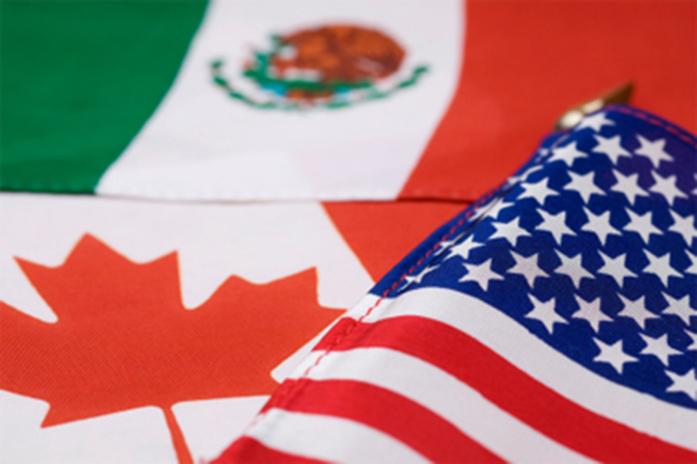W
hether by bashing the Trans Pacific Partnership or encouraging such notions as a 20 percent tax on Mexican imports, President Trump has made it clear that the North American Free Trade Agreement (NAFTA) is one he does not support. But in (what has obviously become) typical Trump-fashion, the administration is more focused on punitive measures for other countries than it is on actually protecting the long-term interests of American citizens.The reality — for better or worse — of NAFTA, and the setup of North American trade in general, is that U.S. companies and individuals have interests in both Mexico and Canada in addition to the United States.
In fact, a lot of U.S. companies, particularly farmers, have so many assets in Mexico that there is virtually no restructuring of NAFTA that the Trump administration could enact that would bring this production back to the United States. Garland Reiter of the massive fruit-producing company Driscoll’s told NPR that some of Trump’s restructuring wouldn’t force him to move back his Mexican interests to the U.S. but would increase the cost of Mexican produce in America.
Were the Trump administration to systematically destroy NAFTA or even alter it in the name of punishing a Mexican government that refuses to cooperate with his absurd assertion that it will pay for a border wall, the real impact would be felt by American farmers, who rely on both trading with Mexico and Mexico’s uniquely well-suited growing climate.
As such an important agricultural state, potential changes to NAFTA would hit home for Iowa in a major way.
Iowa is second among all states for agricultural exports behind California, according to the Department of Agriculture. However, Iowa is first in a number of export categories such as pork, corn, feed, and other animal products. Because of the nature of the agricultural products upon which Iowa’s economy is based, the problem for Iowan farmers would be less in moving growing acreage back to the U.S. and more in attempting to make up for lost income exporting products throughout North America.
This isn’t, of course, to say that NAFTA is perfect or that it benefits American farmers as much as another deal potentially could.
Yet despite its imperfections, NAFTA (or at least the idea of free trade among the three largest North American countries) has been a catalyst for rapid economic growth in a now-intertwined North American economy. According to the New York Times, U.S. exports to Mexico are now 3.5 times their level than in 1993 (the year before NAFTA was established), after being adjusted for inflation.
The Daily Iowan Editorial Board is not opposed to revisiting the 309-page agreement that has defined U.S. trade relations with Mexico (and Canada, incidentally) for more than 20 years. The problem isn’t in analyzing the performance of a decades-old agreement. The issue is that Trump’s argument for needing to revisit the deal is based upon his dislike for illegal immigration and the feeling that “we don’t win anymore.” Former President Obama also argued during his campaigns that NAFTA needed revisiting and, out of his desire, TPP was born — another contentious deal.
However, Trump has defined the trade deficit with Mexico as a major reason for redesigning the deal. What Trump doesn’t seem to understand is that punishing our allies to the north and the south will do little but hurt the American worker. He’ll also fail to prove his point along the way.



